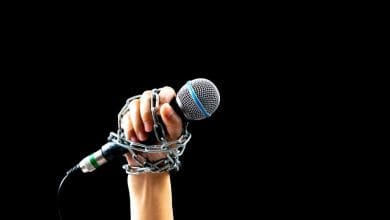
Why Cubans are rising
On Sunday, July 11, thousands of Cubans, in an impromptu and unprecedented way, took to the streets chanting “Libertad, Libertad …,” “Abajo la dictadura” — Down with the dictatorship — and blaming President Miguel Díaz-Canel for their lack of basic goods, such as food, electricity, water and demanding speedy and equitable access to the COVID-19 vaccines.
In the days since, the uprising has continued, the government has cracked down, the U.S. has imposed sanctions — and Americans and others throughout the West have used their own convenient political lenses to interpret the unrest as they see fit.
On the one hand, those who call themselves progressives blame the U.S. embargo and the aggressive measures adopted by the former Trump administration, including a so-called “media war,” for instigating the popular demonstrations, and remain virtually silent about the ravages of the Communist regime in Havana. On the other hand, conservatives and liberals who are critical of the authoritarian regime that has governed the island since 1959 contend that it is precisely the tyrannical nature of the government and its abysmal economic inefficiency that have forced thousands of ordinary citizens, including many young Afro-Cubans, to take to the street across the island.

But these two explanations are not mutually exclusive. It is true that an American embargo against the Cuban government has been in place for the past 60 years, with detrimental effects against the government and ordinary citizens. The Trump administration, reversing a loosening put in place by President Obama, tightened up the embargo, resulting in greater hardships for all Cubans.
The Cuban government is undeniably the people’s chief oppressor. In the midst of the COVID crisis, thousands of ordinary Cubans chose to risk their lives and physical integrity in taking to the street demanding that their rights be respected. Those rights are nominally enshrined in the new Magna Carta: article 54 guarantees the right of freedom of expression, and article 56 guarantees the right of peaceful demonstration. The Cuban leadership has refused to participate in the COVAX Protocol of the World Health Organization to ensure access to foreign vaccines. In the meantime, ordinary citizens have been increasingly dying and continue to die as a result of the COVID crisis with no end in sight.
It is all too easy for the regime, its president and their international progressive apologists to blame the U.S. embargo and a “media war” for instigating the massive protests on the island. The undeniable truth is that the Cuban government, having a monopoly on the use of force, has responded to the public claims of their citizens by unleashing barbaric widespread violence against peaceful protesters who have demanded and continue to demand that their rights be respected. Hundreds have been detained violating their right of habeas corpus, and some have been killed. Regrettably, the so-called progressives have mostly turned a blind eye to these ugly truths, just as they often ignore the daily repression and indignities of ordinary Cubans.
So, why have thousands of Cuban citizens decided to risk their lives demonstrating against their authoritarian government now? Part of the answer has already been offered by progressives, liberals, and conservatives, as mentioned above. The hardships imposed by the embargo have contributed to the lack of basic goods on the island, and certainly the internet and social media have helped ordinary citizens become better informed of events that are going on across the island and around the globe. But what Cuban officials and their apologists call a “media war” is a misnomer for ordinary Cuban citizens exercising their rights of freedom of speech and assembly guaranteed in all major instruments of international law, including their domestic law.
One could also add that the mishandling of the COVID crisis and the virtual collapse of their health-care system — which left-wing commentators in the United States love to praise — due to inefficient government policies have motivated the protesters to demand effective solutions to the crisis.
Still, there’s something bigger and more meaningful going on. As demonstrated by the prior peaceful protests of the San Isidro Movement last November, for the first time a new generation of young Cubans has acquired a juridical conscience. They have decided to remain in Cuba and risk their lives demanding respect for their rights, including their right for democratically constructing a better future without foreign interference. As customary for the past 62 years, Cuban officials have doubled down on more repression to try to silence the peaceful protesters. They are running out of time.
Vicente Medina is a professor of philosophy at Seton Hall University.
